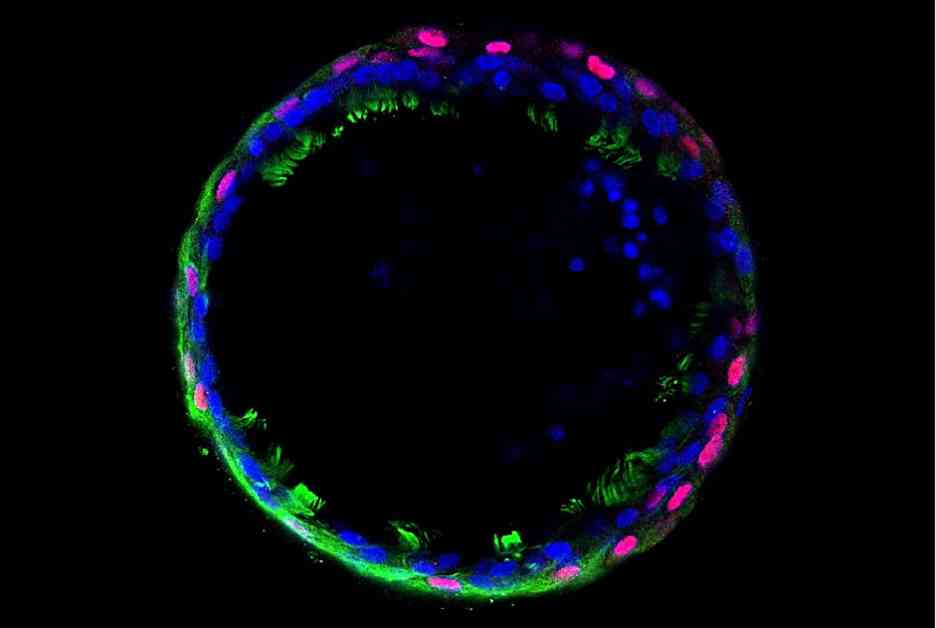Harnessing the Power of Lab-Grown Organoids for Human-Specific Research Insights
Mini organ-like complexes known as organoids are revolutionizing the field of medical research, offering a humane and effective alternative to traditional animal testing methods. These miniature replicas of human organs, grown from stem cells in the lab, are providing invaluable insights into various diseases and potential treatments, ultimately paving the way for more personalized and effective healthcare solutions.
A Breakthrough in Medical Science
In 2009, Dutch molecular geneticist Professor Hans Clevers made a groundbreaking discovery by successfully growing a miniature organoid, specifically a tiny intestine replica, in the laboratory. This achievement demonstrated that human stem cells have the remarkable ability to self-organize and replicate the structure and function of real organs. Fast forward to the present day, and 3D organoids are being utilized to test novel treatments for a wide range of diseases affecting vital organs such as the lung, eye, brain, ear, kidney, and heart.
Meet Dr. Shafagh Waters: A Pioneer in Organoid Research
Dr. Shafagh Waters, a founding member of the Non-Animal Technologies Network established by the Office for Health and Medical Research in 2024, is at the forefront of advancing the development and utilization of organoids in medical research. As a distinguished Scientia senior lecturer at UNSW, Sydney, and an expert in stem cell and organoid medicine, Dr. Waters has spearheaded groundbreaking initiatives to harness the power of organoids for studying complex diseases such as Cystic Fibrosis.
In a recent interview, Dr. Waters shared insights into the fascinating world of organoids and shed light on their transformative potential in healthcare. She explained that organoids, which mimic the structure and function of real organs on a smaller scale, are cultivated from stem cells collected from the tissue of interest. By providing the right nutrients and environmental conditions, these stem cells develop into 3D structures that closely resemble the organ or tissue being studied.
Organoids as ‘Avatars’ in Personalized Medicine
One of the most exciting applications of organoids is their use as ‘avatars’ in personalized medicine. Dr. Waters and her team have developed miniature lung and gut organoids using patient-derived stem cells, allowing them to test medications and tailor therapies to individual patients’ specific needs. These avatar organoids serve as invaluable tools for predicting treatment responses and guiding healthcare providers in choosing the most effective therapies for patients with conditions like Cystic Fibrosis.
Through the support of the Non-Animal Technologies Network, Dr. Waters and her colleagues have been able to collaborate and advance their research on complex-organoid technologies. The funding provided by the Network has enabled them to scale up production, conduct high-throughput testing using organoids, and accelerate the discovery of effective treatments for various diseases.
Expanding the Possibilities of Organoids
Thanks to advancements in organoid technology, researchers can now create a diverse array of mini-organs for studying a wide range of diseases and conditions. From lungs and intestines to brains, kidneys, livers, pancreases, and stomachs, organoids offer a more accurate and human-specific model for testing therapies and understanding complex biological processes.
Patient-derived organoids are revolutionizing medical research by providing researchers with a more accurate and ethical alternative to animal testing. By closely mimicking human biology, organoids are enhancing our understanding of diseases, accelerating drug discovery, and ultimately improving healthcare outcomes for patients worldwide.
